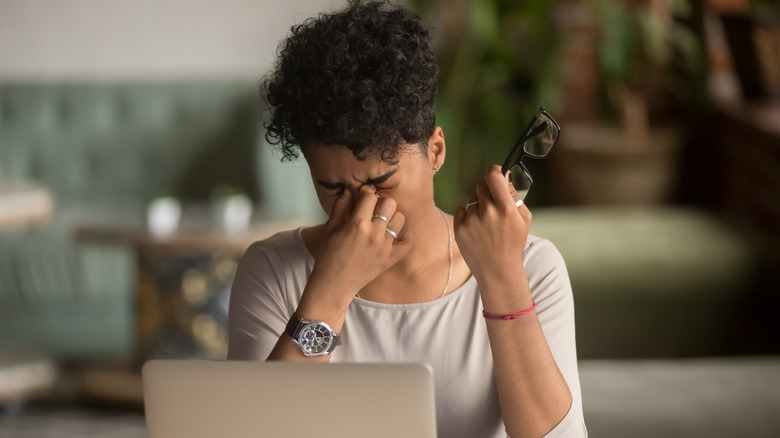The Vitamins You Need If You Have Dry Eyes
Having dry eyes can feel like your eyeballs have been rubbed with sandpaper. The stinging, burning, and redness are enough to make you want to just keep your eyelids shut. Many Americans are faced with annoying dry eye symptoms. According to a study in the Antibiotics journal, dry eye disease (DED) is one of the most common conditions optometrists see, with over 16 million Americans diagnosed.
According to the Mayo Clinic, DED happens when your eyes don't make enough tears or don't make quality tears to keep your eyes lubricated. When your eyes don't make enough tears, the surface of your eyeball becomes inflamed. This is what causes your eyes to become irritated.
You may think that your dry eyes come from looking at the screen of your phone for too long or from sitting in a room with dry air, but your dry eyes could be the result of not getting enough of the right vitamins.
Vitamin A, D, and omega-3 supplements can help prevent dry eyes
Just like the other organs of the body, your eyes need proper nutrition for optimal functioning. A 2021 article in the Risk Management and Healthcare Policy journal discussed how COVID-19 lockdowns will cause what researchers are calling "quarantine dry eye". Researchers say that during COVID-19 lockdowns, many people did not get enough exposure to sunlight, drank more alcohol, and ate more junk food and poor-quality meals. Under these conditions, the researchers were concerned that people may become deficient in nutrients that are important for keeping eyes lubricated.
If you aren't getting enough nutrients in your diet, supplements may be the answer for your dry eyes. According to Healthline, not only is Vitamin A essential for good vision, but it also helps keep your eyes moist and lubricated. Vitamin A plays an important role in tear production and quality. Vitamin D, also known as the sunshine vitamin, can help decrease eye inflammation. Omega-3 fatty acids help reduce DED symptoms and reduce tear evaporation.
As with any supplement, you should be careful to read the labels and talk to your doctor to ensure that you are taking the correct dosage for your nutritional needs.


